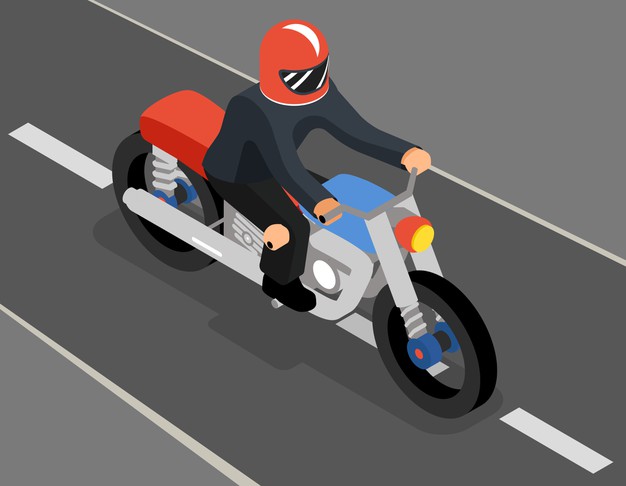Laws and Regulations for Florida Motorcyclists
Florida offers some of the best experiences for riders in America. It’s great ocean views and fantastic weather makes riding much more appealing, and it’s no surprise that this state has over 590,000 registered motorcycles.
Unfortunately, Florida also ranks high in the number of motorcyclist accidents, and it’s not unlikely to get injured in a motorcycle crash. If you have been involved in a motorcycle accident, the skilled motorcycle accident attorneys at Fetterman & Associates, P.A. can apprise you of your legal rights and options.
Here’s what you need to know about the rules and regulations for motorcyclists in Florida before hitting the road.
Read Also – When is it Necessary to Hire a Motorcycle Accident Attorney?
Motorcycle license requirements
The first condition to fulfill before hitting the road on your motorbike is having a valid motorbike license. You could have your motorcycle license in two forms,
- Having a motorcycle endorsement on your driving license or
- Get a motorcycle-only license if you are not a driver’s license holder.
Insurance requirements
Florida insurance laws can be confusing. While all drivers are required to carry PIP insurance, the rule does not apply to motorcycle riders.
However, riding a motorcycle without insurance is not advisable. First, an insurance cover ensures that you are covered in the event of an injury and covers your liability for damages and injuries caused to others in an accident.
Whether you have insurance or not, it is always best to work with experienced West Palm Beach motorcycle accident attorneys if you are involved in a motorcycle accident in Florida.
If a rider is involved in an accident, they are obligated by law to carry a PIP cover and property damage liability coverage for three years.
Helmet requirement
According to the Florida motorcycle laws, all motorcycle riders must wear a helmet that meets the Federal Motorcycle Vehicle Safety Standard 218 while on the road.
The helmet should fit the rider’s head snugly for maximum safety and have no apparent signs of defects such as cracks, frayed straps, or loose padding.
However, there is an exemption to this law. Riders aged 21 and above may ride without a helmet on the condition that they carry an insurance cover with a least $10,000 in medical benefits.
Read Also – 3 Things You Must Know about Seeking Compensation for Personal Injury after a Car Crash
Additional protective equipment regulations
Florida law imposes a set of regulations regarding safety equipment for riders. These regulations help maximize the riders’ safety as well as that of other road users. These requirements include:
- Eye protection. Every motorcycle rider in Florida is required by law to have protective eyewear when riding. The eyewear must meet the standards set by the transportation department.
- Headlights. Florida Statute 316.405 makes it mandatory for all riders to have their headlights on at all times when riding on Florida’s roads.
- Handlebar rules. Motorcycles in Florida are not allowed to have handlebars higher than the shoulder height of the motorcycle operator.
- Seat. A motorcycle operator is required by law to ride only on the permanent seat attached to the motorcycle. Additionally, passengers may be allowed to ride on motorcycles equipped to carry a passenger and must sit on a seat permanently attached to the bike.
- Footrests. If a motorcycle has to carry a passenger, the bike must have a footrest for the passenger.
- Turn signals and mirrors. Riders in Florida are required by law to have a working turn signal and at least one functional rearview mirror.
Road usage rules
In Florida, road rules apply for all road users, motorcyclists included. If you are new to riding in Florida, there are a few road usage rules for riders you need to be aware of. These include:
- Lane splitting. While lane splitting could be legal for riders in some states, it is illegal in Florida. According to Florida statute 316.209(2), a motorcycle operator is not allowed to overtake a vehicle in the lane occupied by the vehicle.
- Riding between lanes. A motorcycle operator is prohibited under Florida law from operating a motorcycle between two adjacent rows of vehicles. In case a rider is hit while riding between lanes, they risk losing out on compensation under Florida’s comparative negligence law.
Other prohibitions include the use of headphones, running more than two motorcycles abreast on a single lane, drag racing or competition on roadways or parking lots, and stunting.
Read Also – Penalty for driving without insurance
Get legal help for motorcycle injuries today.
There is usually an open bias against riders in Florida, and responding law enforcement officers almost always find the rider at fault in case of an accident.
Have you or a loved one been involved in a motorbike accident? Let our team of skilled West Palm Beach motorcycle accident attorneys At Fetterman & Associates, P.A., help you in your fight for justice. With our over 40 years of experience representing auto accident victims, you can be assured of the best outcome for your case.
